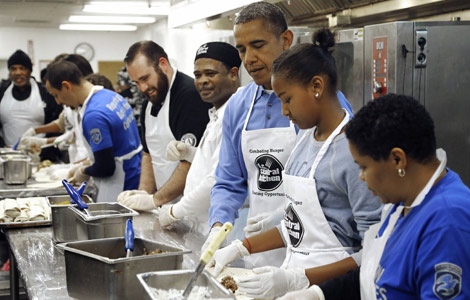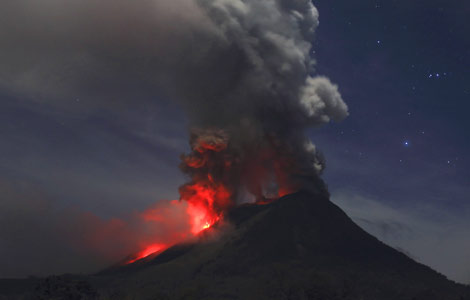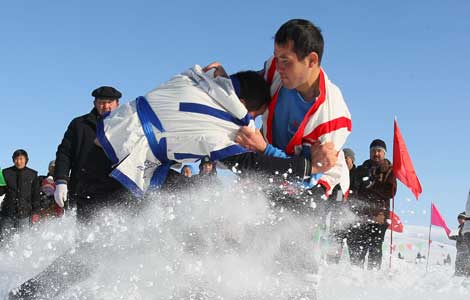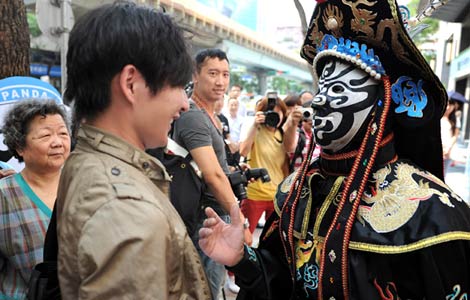Japan seeks US understanding about dolphin hunt
Updated: 2014-01-21 22:24
(Xinhua/Agencies)
|
||||||||
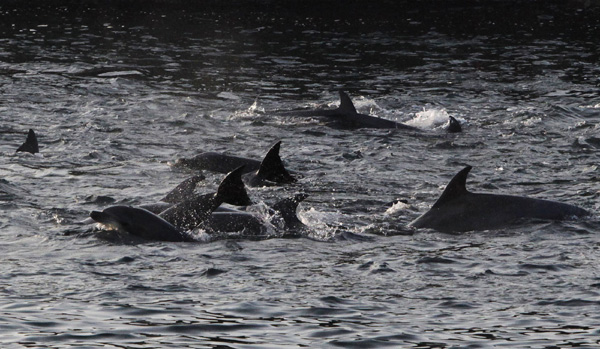 |
|
Dolphins are seen at a cove in Taiji, western Japan, January 21, 2014. [Photo/Agencies] |
TOKYO - Japanese fishermen drove a large group of dolphins into the shallows and killed at least 30 on Tuesday, hiding themsleves behind a tarpaulin, as the annual dolphin hunt that sparked protest in the West entered its final stages.
Both the US and British ambassadors to Japan have strongly criticised the "drive killings" of dolphins citing the "terrible suffering" inflicted on the marine mammals.
Every year the fishermen of Taiji, in western Wakayama prefecture, drive hundreds of dolphins into a cove, select some for sale to marine parks, release some and kill the rest for meat.
On Tuesday, at least 30 dolphins out of the group of more than 200 held in the cove since Friday were herded by boat engines and nets into a killing area of the Taiji cove.
Fishermen waiting in the shallow waters by the shore, some in wet suits with snorkelling masks on their faces, wrestled the dolphins into submission and tied their tails with ropes to stop them from escaping.
Before the killing began, fishermen pulled a tarpaulin in front of the cove to prevent activists and reporters from seeing the killing. A large pool of blood seeped under the tarpaulin and spread across the cove.
Japan is seeking the understanding of the United States about its traditional dolphin hunt in Taiji, Wakayama Prefecture, according to local media Tuesday.
The governor of Wakayama Prefecture, Yoshinobu Nisaka, said that the hunting of dolphins in Taiji is part of the village's traditional culture and only the minimum number of whales and dolphins are hunted, in accordance with global regulations on the species involved.
Chief Cabinet Secretary Yoshihide Suga has also defended the culling of dolphins as being "lawful" amid an international outcry over the practice, in particular opposition from the United States.
Suga, Japan's top government spokesperson, said the hunt is a form of traditional fishing here and that Japan will seek to explain its position to the United States.
He added that under the International Whaling Commission regulation, dolphins are not covered, and that each country is in charge of "managing the mammals in its own seas."
Nisaka and Suga's remarks came after US Ambassador to Japan Caroline Kennedy told a popular social networking media site that she was "deeply concerned" by the annual practice, which she described as being "inhumane." The US diplomat added that her government was "opposed" to drive hunt fishing, such as those that occur in Taiji.
Most Viewed
Editor's Picks
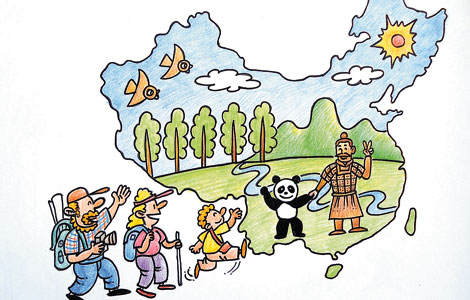
|

|

|

|

|

|
Today's Top News
Memorial hall reflects on Japan's aggression
Missionary wants US to get him home
Tech park visits Bay Area
US may be losing in globalization
Students develop apps for campus life
Three dead in China food poisoning
Beijing blood donations drop
US commemorates Martin Luther King Jr.
US Weekly

|

|
